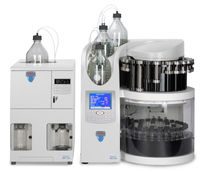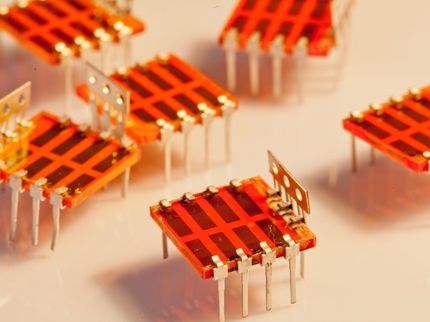Promising biobased alternatives to polar aprotic solvents
A report from Wageningen Food & Biobased Research commissioned by RIVM (the Dutch National Institute for Public Health and the Environment) has revealed a number of promising biobased alternatives to the controversial polar aprotic solvents NMP, DMAc and DMF. Wageningen Food & Biobased Research carried out a broad scan of new and marketable biobased chemicals. This focused specifically on substitutes for the polar aprotic solvents NMP, DMAc and DMF – all substances of very high concern, the use of which may be limited by EU law in the future.
Within the EU BBI project RESOLVE, Wageningen Food & Biobased Research is already developing safe alternatives to toluene and NMP, two widely used substances of very high concern. RESOLVE focuses on the development of alternatives with a completely different chemical structure, entirely avoiding the chemical groups which make toluene and NMP toxic. Moreover, the alternatives are sustainable because they are made from carbohydrate-rich waste streams such as sugar beet pulp.
Important solution for toxic substances
The RIVM study looked specifically at substitutes for polar aprotic solvents. One of these solvents is DMAc, which received negative coverage in the news as recently as last year for supposedly causing fertility issues among the female employees at a chemical plant. The study was carried out by Daan van Es, senior scientist at Wageningen Food & Biobased Research.
“Biobased chemicals are currently of considerable interest. The development of new materials with unique chemical structures and properties can provide a replacement for controversial polar aprotic solvents such as DMAc and NMP. It is, however, crucial to understand issues such as technical feasibility, availability of raw materials and the viability of commercial production. Our study presents all this clearly.”
Van Es indicates that further research is needed in order to be able to judge the effectiveness, sustainability and toxicity of the proposed replacements. “We have identified a large number of potential replacements, but they are not yet in production as substitutes for the relevant polar aprotic solvents.” Final assessments of sustainability and toxicological properties should be subject to further research performed in cooperation with the private sector.
RIVM is conducting a desk study to screen which toxicological information is available for these biobased alternatives, if any.
Tests with industrial partners
A follow-up programme in which several potential replacements are made and tested would be very useful. “Ideally, we would work with several industrial partners – such as manufacturers of paints and industrial detergents, as well as producers of biobased materials themselves – to examine the proposed substitutes for toxic substances in their solvents,” Van Es continues. The government can encourage and facilitate such partnerships within a broad research programme. “We have already created an impetus for the substances toluene and NMP within the RESOLVE project. This is necessary to assess the concrete potential of biobased substitutes, and enables us to really start thinking about commercial production together with private sector partners.”
Topics
Organizations
Other news from the department science
These products might interest you

ERBAdry by CARLO ERBA Reagents
Anhydrous solvents from CARLO ERBA Reagents in a clever redesign
ERBAdry series impresses with the latest generation of septa and sealing caps

Thermo Scientific™ Dionex™ ASE™ 150 or 350 Accelerated Solvent Extractor systems by Thermo Fisher Scientific
Accelerated Solvent Extraction (ASE) – Maximize results and reduce errors in food analysis!
More extractions in less time using less solvent

Get the chemical industry in your inbox
By submitting this form you agree that LUMITOS AG will send you the newsletter(s) selected above by email. Your data will not be passed on to third parties. Your data will be stored and processed in accordance with our data protection regulations. LUMITOS may contact you by email for the purpose of advertising or market and opinion surveys. You can revoke your consent at any time without giving reasons to LUMITOS AG, Ernst-Augustin-Str. 2, 12489 Berlin, Germany or by e-mail at revoke@lumitos.com with effect for the future. In addition, each email contains a link to unsubscribe from the corresponding newsletter.



















































